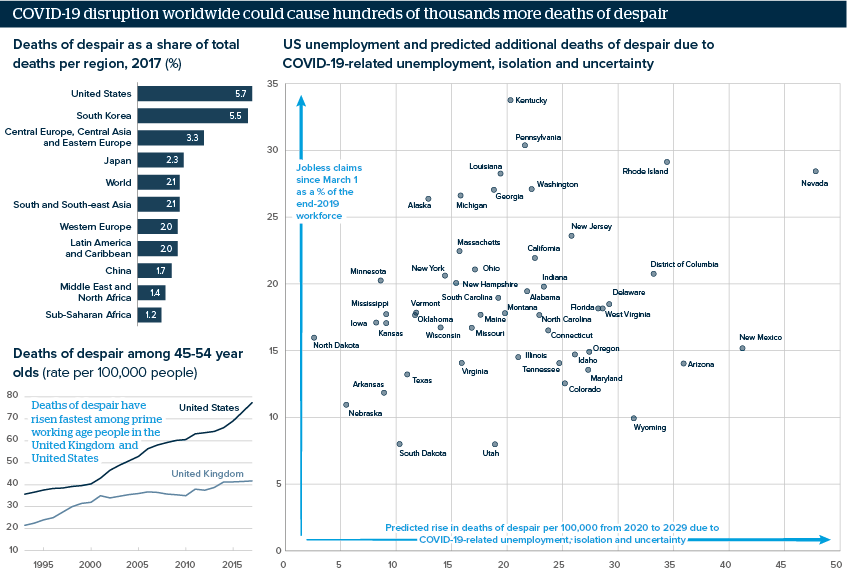Deaths of despair could hinder the economic recovery
Social isolation and economic uncertainties arising from COVID-19 lockdowns could prompt many more deaths of despair
Source: Well Being Trust & The Robert Graham Center; Global Burden of Disease Dataset; Bureau of Labor Statistics
Outlook
Research suggests that more US citizens will die from despair (suicide, drugs, alcohol abuse) due to the unemployment, isolation and uncertainty arising from the COVID-19 crisis than from the virus itself. A similar trend may be seen in other countries including the United Kingdom, where such ‘deaths of despair’ were already rising.
The virus flourishes in high-density, higher-growth urban centres. These areas could be just as scarred as regions where unemployment and deaths of despair were higher before the pandemic.
Deaths of despair will continue rising in the United States and United Kingdom. Common root causes mean they could also rise in other advanced and emerging markets -- hindering the economic recovery worldwide by raising healthcare costs and reducing workforce participation and innovation.
Impacts
- Budget cuts may cut some nations’ education funding; more US and UK 25-34s are dying of despair deaths than 20 years ago.
- The trend prompted the UK government to authorise Professor Angus Deaton to extend his US deaths of despair work and recommend UK policies.
- Aiding regional equity, COVID-19 impacts may validate the ‘death of distance’ theory that connectivity cuts the need for urban clustering.
- Public perception of policy will affect people’s behaviour; in 58 nations, most respondents feared COVID-19 policies are insufficient.
See also
- Rising US joblessness and social discord threaten GDP - Aug 17, 2020
- COVID-19 and protests will shake up US cities - Jun 4, 2020
- US deaths of despair will drag long-term growth lower - Feb 6, 2020
- More graphic analysis
